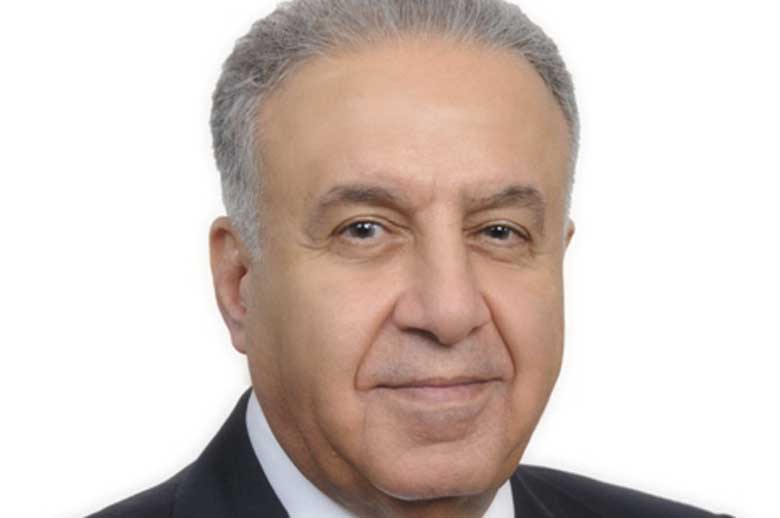

The economic reforms being rolled out across the region raise many questions about the relationship between government and society, says Khalid al-Zayani
The fall in oil prices since the middle of 2014 is having a profound effect on the region. The substantial reduction in the revenues of oil exporters is squeezing government finances and the pressure is not anticipated to ease off any time soon.
Of course, this is not the first time we have felt the impact of a slowdown in the energy markets, with the 1986 oil price crash in particular leaving scars on the regions collective memory.
This time, however, the dip is likely to be a structural change rather than a cyclical downturn. The impact and consequences will not therefore diminish and the region cannot simply ride out the storm in the expectation of an inevitable recovery. We must adjust to a new economic reality.
As we saw in previous periods of low oil prices, the response of governments has been to promise wide-ranging economic reform programmes that reduce state spending and generate new income streams. These reforms will affect everyone living and working in the region.
Taxing times
Welfare state privileges for GCC citizens are coming to an end. And taxation will have to become an accepted norm of revenue for our governments and a living expense for all of us as citizens. As is the case in the rest of the world, we dont have to like it, but we have to get used to it.
The introduction of wide-ranging new tax regimes raises many important issues, both political and practical. And just as citizens will be required to adjust their thinking to absorb the impact of increased taxation, so too must governments adjust their behaviour and processes to ensure the taxes are having a positive impact on the economy.
Has there been enough consultation with citizens when formulating taxation plans?
The first question is whether our governments own long-term plans to manage this inevitable new course of raising revenue. Also, has there been enough consultation with citizens when formulating taxation plans?
The first major new tax will arrive on 1 January 2018, when a value-added tax (VAT) of 5 per cent will be introduced on a host of goods and services across the GCC. But, as the date approaches, the reality of what is coming also is raising important questions.
What was the wisdom in proposing a mere 5 per cent VAT? The collection cost of a 5 per cent tax will surely be more than its expected revenue. Why not introduce a 12 or 15 per cent levy to make this taxation a worthwhile exercise? Was such a decision made in consultation with local chambers or business communities?
The introduction of the new taxes and the question that they raise touches on some important and potentially sensitive aspects of governance in the region.
Culturally, GCC states remain managed by traditional tribal-based systems of government and mentality. Parliaments representatives are usually elected due to their family or religious connections, which may not make them an equal match to their counterparts in executive branches of governments. This trend will remain until the emergence of parties with attractive political agendas that could engage members beyond their tribal or religious circles.
Downsizing of governments
Another new challenge raised by the structural reform programmes is the shrinking of government, particularly in the economic sphere. The downsizing of governments is also a trend that we must experience soon in our region, and it also raises some interesting questions for both the authorities and society.
Will the private sector be fit enough to take a bigger share in running healthcare, education, municipal and other services? Will our private sector be able to employ and shed workforce, and be the main provider of jobs to citizens? The labour market reforms needed to support this raise interesting challenges that, again, will require citizens of the region to rethink some of their traditional processes.
What incentives and protections will governments offer to encourage the private sector to take up that slack?
Change is always accompanied by many challenges, but it also brings new opportunities. And the regions new economic reality and reform agenda certainly offers opportunities for the traditional family businesses if they are nimble and willing to adapt.
But unless traditional family businesses shed their bazaar merchant mentality, most of these challenges will be picked up by newcomers who will appear on the markets.
Exciting times are ahead where there will be challenges to be faced by both governments and citizens of the GCC.
Khalid Rashid al-Zayani serves as the honorary chairman of the family firm Al-Zayani Investments, and is also a board member of various business communities
You might also like...

TotalEnergies to acquire remaining 50% SapuraOMV stake
26 April 2024

Hyundai E&C breaks ground on Jafurah gas project
26 April 2024

Abu Dhabi signs air taxi deals
26 April 2024

Spanish developer to invest in Saudi housing
26 April 2024
A MEED Subscription...
Subscribe or upgrade your current MEED.com package to support your strategic planning with the MENA region’s best source of business information. Proceed to our online shop below to find out more about the features in each package.








